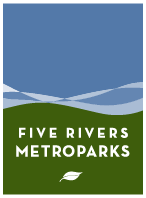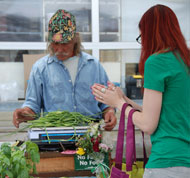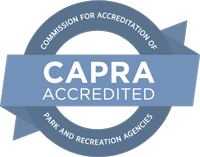Enjoy the best of in-season, locally grown vegetables, herbs and bedding plants brought to the Market straight from the field at the annual summer outdoor Farmers’ Market. Conventional and organic farmers will participate every Saturday.
-
Places To Go
-
- Parks
- Interactive Parks Map
- Aullwood Garden
- Carriage Hill
- Cox Arboretum
- Deeds Point
- Eastwood
- Englewood
- Germantown
- Hills & Dales
- Huffman
- Island
- Possum Creek
- RiverScape
- Sugarcreek
- Sunrise
- Taylorsville
- Twin Creek
- Wegerzyn Gardens
- Wesleyan
- Conservation Areas
- Dull Woods
- Medlar
- Woodman Fen
- Regional Trails
- Hiking Trails
- Paved Trails
- Touring Routes
- Water Trails
-
-
Things To Do
-
- Programs & Events
- Calendar
- Financial Assistance
- MetroParks Trails Challenge
- Activities
- Activity Finder
- Backpacking
- Boating
- Camping
- Conservation & Citizen Science
- Cycling
- Entertainment
- Fishing
- Fitness
- Flora & Fauna
- Food: Earth to Table
- Gardening
- Geocaching
- Heritage & History
- Hiking
- Horseback Riding
- Ice Skating
- Mountain Biking
- Nature Appreciation
- Outdoor Play
- Outdoor Skills & Safety
- Paddling
- Photography & Art
- Sustainable Home
- Winter Sports
-
-
What We Do
-
- Conservation Leadership
- What We Protect
- How We Do It
- Priorities & Projects
- Progress & Impact
- Connecting People With Nature
- Amenities & Access
- Programs
- Festivals & Events
- In The Community
- Outreach & Advocacy
- Community Resources
- Research
-
-
Make A Difference
-
- Sponsor
- Opportunities
- Our Sponsors
- Volunteer
- Become a Volunteer
- Volunteer Positions
- Take Action
- In the Parks
- At Home
- In the Community
- Research
-
-
Rentals & Permits
-
- Shelters
- Reserve a Shelter
- Campsites
- Reserve a Campsite
- Facilities
- 2nd Street Market Rentals
- Cox Arboretum Rentals
- RiverScape MetroPark Rentals
- Wegerzyn Gardens Rentals
- Permits
- Special Use Permits
-



